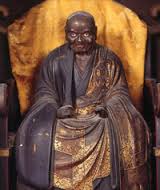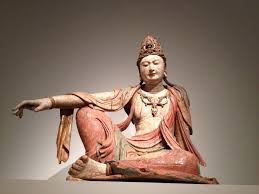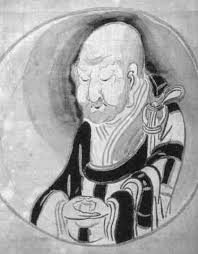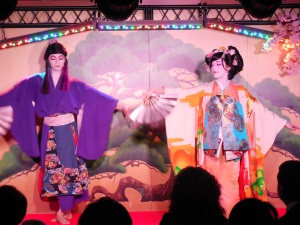Pain for me right this moment is my acute attack of arthritis.
I can’t sleep. I have a swollen red throbbing joint. Picture stubbing your toe hard every two seconds.
There are worse pains. I have had worse pains. Like when my gut perforated some years back.
And I have had suffering. This is pain, not suffering. There’s a big difference.
I suspect a billion or two billon people right now are in worse physical pain than I am. They are in pain from hunger, thirst, all manners of trauma and injury, illness, medical procedures, exposure, or for that matter, childbirth. Hundreds of people are probably in worse pain within a few of miles from where I am sitting writing at 2:30 AM my time.
Pain, not suffering. Billions and billions are suffering. Many more are suffering than are in physical pain. They are afraid. They are lost. They have experienced some deep loss. They are overwhelmed. They are threatened.
I think suffering for me would be seeing my son or daughter or one of my grandsons in this kind of pain. I am a doctor. Parents come in with their kids who have inflammatory eye disease and almost always they are suffering more than their kids. Even if the kids are going blind, it is the parents who seem to suffer more.
Helpless, worried, not my baby. Very hard.
And yet Buddhism talks about an end to suffering. I don’t think that means not caring or not feeling. I think it means not getting overwhelmed by all of the pain and suffering. Your own, your kids’, your lovers’ your friends’, the world’s.
Unless they were conditioned to need that form of attention, your kids (and lovers, friends and yes, even the world) don’t want you to suffer because of their pain. Unless they are very deluded or very damaged (and some are, of course) or very neglected they will soon figure out that your suffering doesn’t help them very much. It probably gets in the way.
What I see in the kids (or spouses, or lovers, or friends or parents) who are sick is they want their parents (or.. fill in the blank) to be cool, calm and collected. Sure there are cultural differences. In some cultures you need to be loud and demonstrative, but that’s just style.
Whether it’s your kids or the rest of the world, they want your attention. They may need help to navigate whatever they are going through. Maybe they are scared. Perhaps they don’t want you TOO cool, at least not all the time; a bit of coddling can go a long way. Sometimes crying helps. Because, well, it hurts and they want to know you know that. They want to know that you care and will do something to help if you can.
And you will help if you can, wont you? Even strangers? And even not pleasant strangers,real people, not just imaginary needy “deserving” people somewhere out there? Sometimes? Just keep your cool and do what you can when you can? Even if it is just to let them know you are there?
Sometimes you can’t make it all better. You try. You chant, you give, you try, you do something. But samsara, the way of the world, is that shit happens. As a parent, lover, doctor, citizen of the world, I know. That’s harsh. Sometimes you have to let go. “One person, one karma,” as we used to say on the commune. That sucks. You know it does. But there it is. That’s why those of us who do a practice, do it as best we can. Because sometimes it just sucks.
The crazy and greedy few aided by our lethargy and willful ignorance will continue to foster injustice, may destroy human life on earth and create a mass extinction event, but we’ll try anyway, right? At least a little, despite our despair and weakness? Because maybe, just maybe, just in case, we aren’t as useless as we think we are?
There are stories in Zen about some Zen master crying over a death of someone in their life. Or it could just as easily be crying over a wayward child, lost to drugs or craziness. Or a parent or spouse with Alzheimer’s. Or victims of disasters, natural or man made. Or you name it.
For example, there is a story about a former student of the 18th century Japanese Zen master Hakuin who as a girl breezed through her Zen studies, a real prodigy. When she was older some neighbor took her to task when she cried and mourned her grandchild’s death.
But you were the prized pupil of the great Hakuin, how can you still know suffering? How can you indulge yourself with such crying and wailing and all that? They asked. And that’s how these stories go. Oh you are so enlightened, why are you crying? Why are you so attached? Isn’t it all a dream, a projection, aren’t you beyond life and death? Haven’t you reached an end to suffering?
These stories always end with the Zen master, or the grandmother former Zen prodigy saying, in effect:
“Fuck you.”
Gotta love authenticity.
Sometimes the right authentic response to someone who is judging others for suffering and wont try to help and doesn’t care and wont even try to be cool and be kind does seem to be “fuck you.”
I have had it said to me in that context a few times, though not always in just so many words, and I deserved it. Can be a strong and compassionate teaching.
There is an ancient Chan Buddhist text called “The Ceasing of Notions.” It is some of the oldest Buddhist writings we have the original copies of (early Tang). Among the oldest attested Buddhist teachings, way before this text, going back to Greek reports of early Buddhism when the Greek poet and philosopher (and later Buddhist convert!) Pyrrho was with Alexander the Great cruising India 300 BCE, is basically the ceasing of notions (see Beckwith’s recent book “Greek Buddha” if you are interested; I’ll try to write more about that another time).
To cease notions means don’t limit the universe by your conditioned responses, your concepts of how it is. It means be open and aware.
It can lead to compassion.
To cease notions also means having no fixed, concrete and conceptual notions about what it is to cease notions. It certainly does not mean creating new notions about notions, like that you should not know a rock from a potato because that would be just a notion to recognize you eat one not the other. Or that you should not care about the suffering of others because suffering is a notion and we are all one, no separation, no duality, so it doesn’t matter anyway. Or because it is all just your life. Or you do not cry when it is crying time. Or you do cry when it is time to keep it together, because of some notion about crying or not crying.
Those are some stupid notions. There’s no end to stupid notions, even about no notions!
Be cool. Be kind. There’s a lot of suffering going around. Try, because what else can you do?
Hmm, just for a while there, there was no joint, no throbbing, no pain, just writing; it’s funny how that works.











